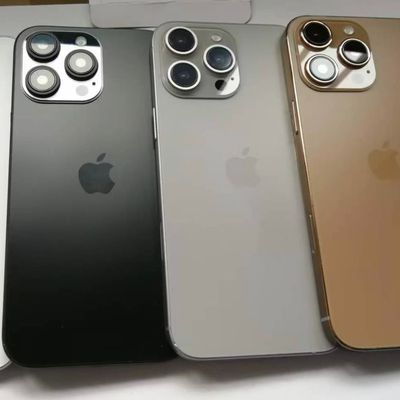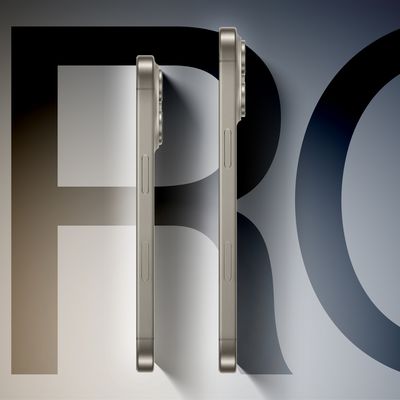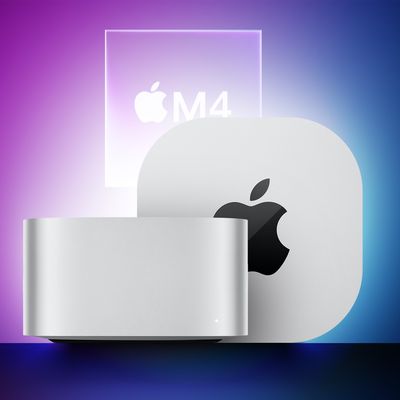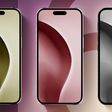Apple Expected to Adopt Technology That May Pave Way for 2TB iPhones
Taiwanese research firm TrendForce this week said it anticipates that Apple will begin releasing iPhones with quad-level cell (QLC) storage by 2026. This technology could pave the way for iPhones with 2TB of storage in the future.
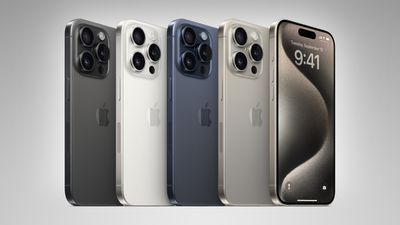
QLC is a denser storage technology compared to the triple-level cell (TLC) technology used for storage chips in existing iPhones, and this would allow for higher storage capacity within the same physical footprint. In addition, QLC storage is typically less expensive than TLC in terms of price per gigabyte. However, one downside is that QLC storage typically offers slower read and write speeds compared to TLC storage.
The density and cost advantages of QLC could pave the way for Apple to release a 2TB storage capacity for future iPhones. TrendForce's estimate that Apple will adopt the technology by 2026 means that it could be incorporated into iPhones starting with iPhone 16 models, iPhone 17 models, or iPhone 18 models, so there is still no exact timeframe for this change. A report from supply chain publication DigiTimes earlier this year claimed that Apple was evaluating QLC for 1TB models of the iPhone 16 Pro and iPhone 16 Pro Max, so the technology could end up being used for both 1TB and 2TB storage capacities.
Apple is expected to announce the iPhone 16 series in September, so we are only a few months away from finding out whether a 2TB storage capacity and QLC storage technology are introduced this year or further into the future.
Popular Stories
Leaker Sonny Dickson is back today with a new dummy unit image showing all four iPhone 16 Pro color variants, including the rose gold or "bronze" unit that replaces Blue Titanium in the existing iPhone 15 Pro models. The iPhone 16 Pro models are expected to come in black, white or silver, gray or "Natural Titanium," and a rose or rose gold color replacing Blue Titanium, according to Apple...
Multiple rumors have suggested that the iPhone 16 models are going to have an all-new button that's designed to make it easier to capture photos when the devices are held in landscape mode. Apple calls the button the Capture Button internally, and it is going to be one of the most advanced buttons that's been introduced to date with support for multiple gestures and the ability to respond to ...
Apple typically releases its new iPhone series in the fall, and a possible September 10 announcement date has been floated this year, which means we are just one month away from the launch of the iPhone 16. Like the iPhone 15 series, this year's lineup is expected to stick with four models – iPhone 16, iPhone 16 Plus, iPhone 16 Pro, and iPhone 16 Pro Max – although there are plenty of design...
Apple's iPhone 16 series is expected to debut in September 2024. This release follows Apple's trend of introducing new iPhone models annually in the fall. While the exact date has yet to be officially confirmed, the day of Tuesday, September 10 has been rumored as a possible announcement date, and September has traditionally been the month when Apple unveils its latest smartphone innovations. ...
Apple is moving forward with its project to develop a tabletop robotic device, according to Bloomberg's Mark Gurman. Subscribe to the MacRumors YouTube channel for more videos. The device would feature a large iPad-like display mounted on a "thin robotic arm" that would allow the display to tilt and up and down and rotate a full 360º, and it would serve as a "smart home command center," a...
It's almost September, but Apple still has multiple new product launches planned for 2024. New iPhone 16 models and Apple Watches are coming in September, and we're also going to get at least three Mac updates with M4 chips this year, according to rumors. Here's what's on the horizon. MacBook Pro Apple plans to refresh both the 14-inch and 16-inch MacBook Pro models, adding M4 chips. The ...
T-Mobile was fined $60 million by the Committee on Foreign Investment in the US (CFIUS) for negligence surrounding data breaches, reports Reuters. CFIUS penalized T-Mobile for failing to prevent or disclose unauthorized access to sensitive customer data. When T-Mobile merged with Sprint, it signed a national security agreement with CFIUS, which is what led to the fine earlier this year....



